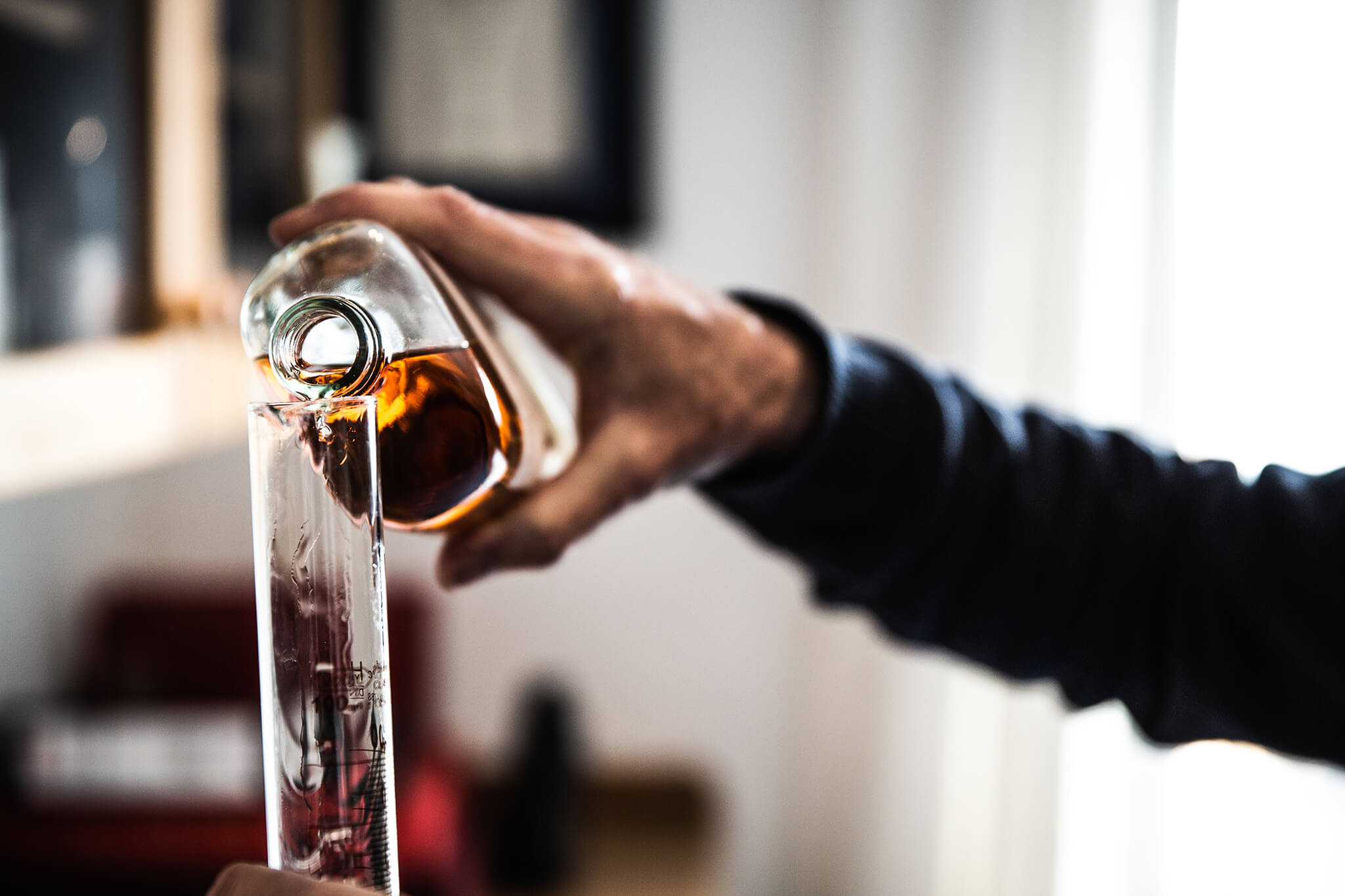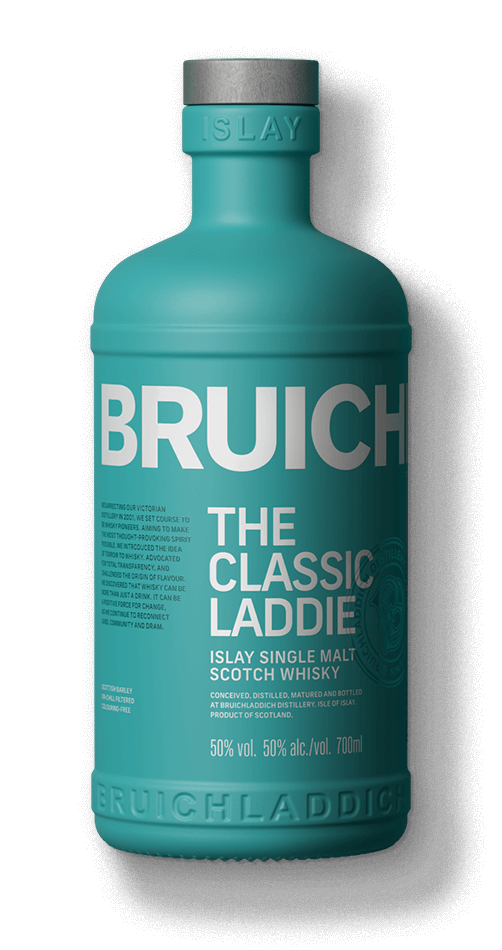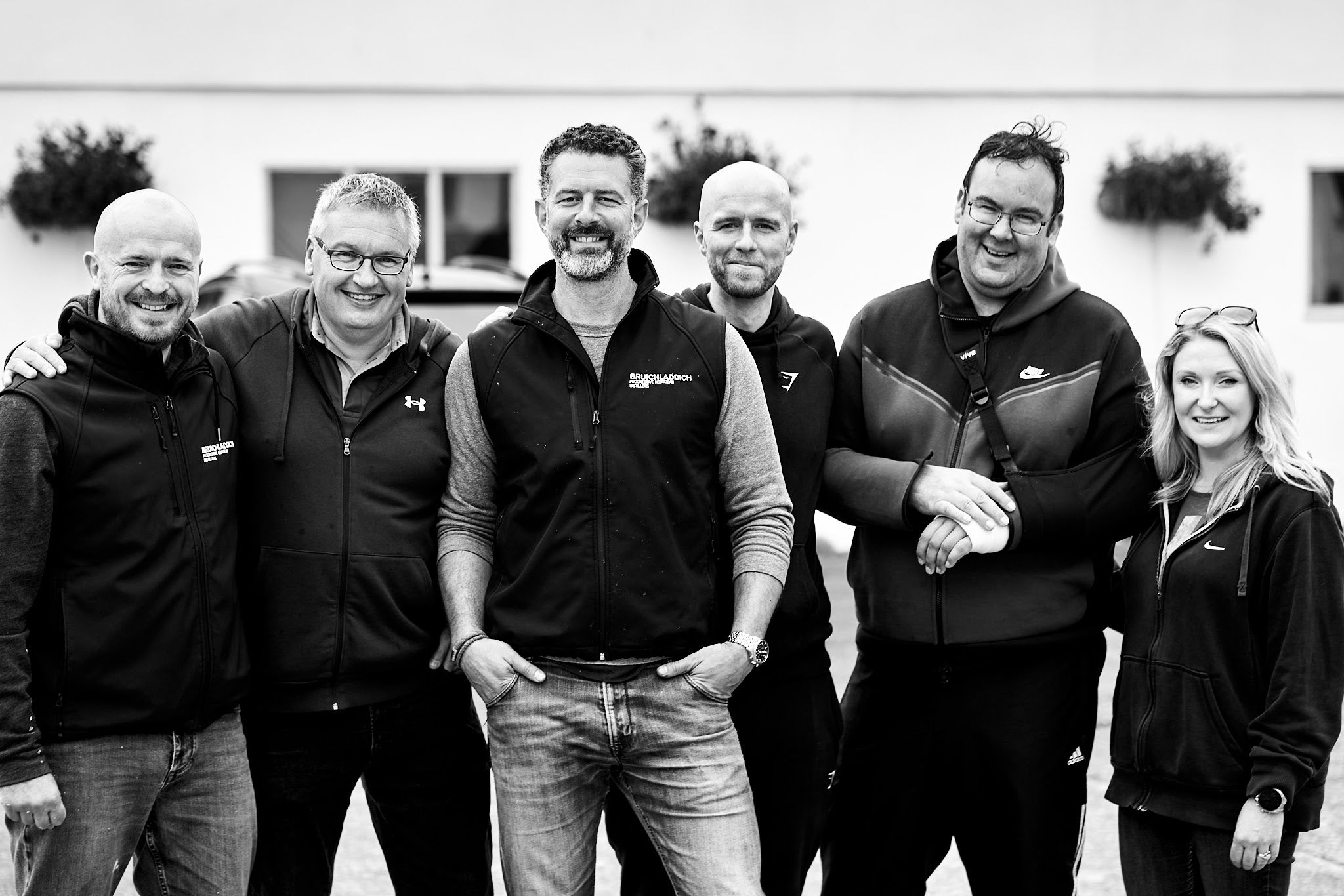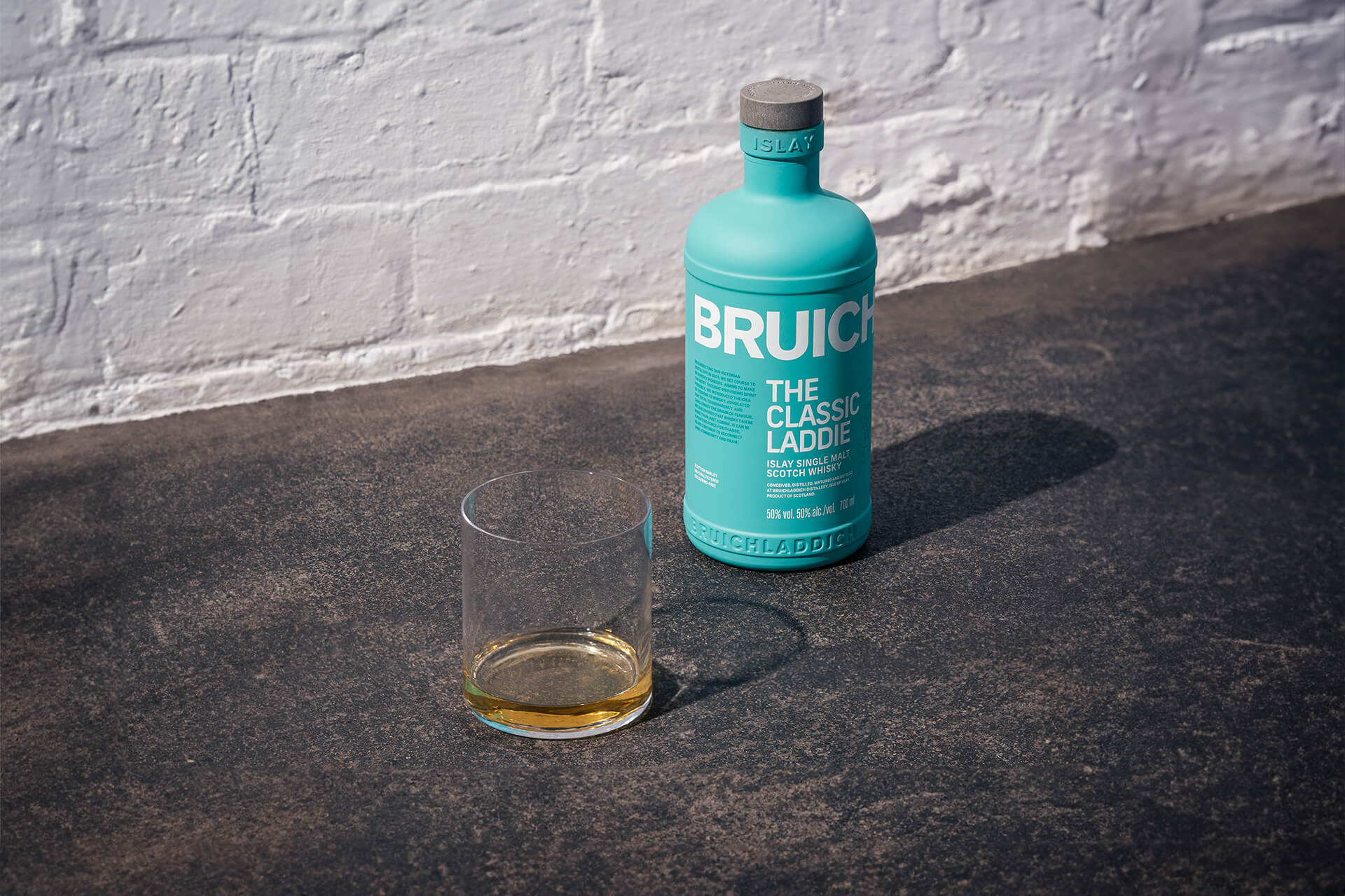
WHAT’S IN YOUR WHISKY?
TRANSPARENCY IN WHISKY
YOUR GUIDE TO INGREDIENTS
PRIDE IN OUR WORK
There are many factors that will contribute to the overall flavour of your single malt whisky, and yet at a very basic level, it is made up of just barley, yeast and water, aged in an oak cask for at least three years.
While age and cask type are often referred to as the most important signifiers of quality, we take a holistic view, embracing flavours from how and where our barley is grown, to the condition of the cask when it is filled, and what ‘vintages’ of spirit are in your bottle. In this section, we explore how these ingredients affect flavour.
On average, our Classic Laddie batches are made up of 76 different casks, comprising 4 vintages of spirit, 3 different barley types and 7 different cask types.
Our Laddie Eight batches are coincidentally made up of around 55 different casks, comprising 2 vintages of spirit, 2 different barley types and 5 different cask types. Put simply, they are not ‘standard’ bottlings. They are a direct embodiment of our commitment to provenance, to quality and our skills as distillers.
MARRYING PROVENANCE, QUALITY AND SKILL
On average, our Classic Laddie batches are made up of 76 different casks, comprising 4 vintages of spirit and 7 different cask types.
Our Laddie Eight batches are made up of around 55 different casks, comprising 2 vintages of spirit and 5 different cask types.
Three different barley types appear in the recipes of The Classic Laddie and The Laddie Eight. They are 100% grown in Scotland, and categorised into ‘Mainland’, ‘Mainland Organic’ and ‘Islay’.
Put simply, they are not ‘standard’ bottlings. They are a direct embodiment of our commitment to provenance, to quality and our skills as distillers. Read on to learn more about what goes into these bottlings.
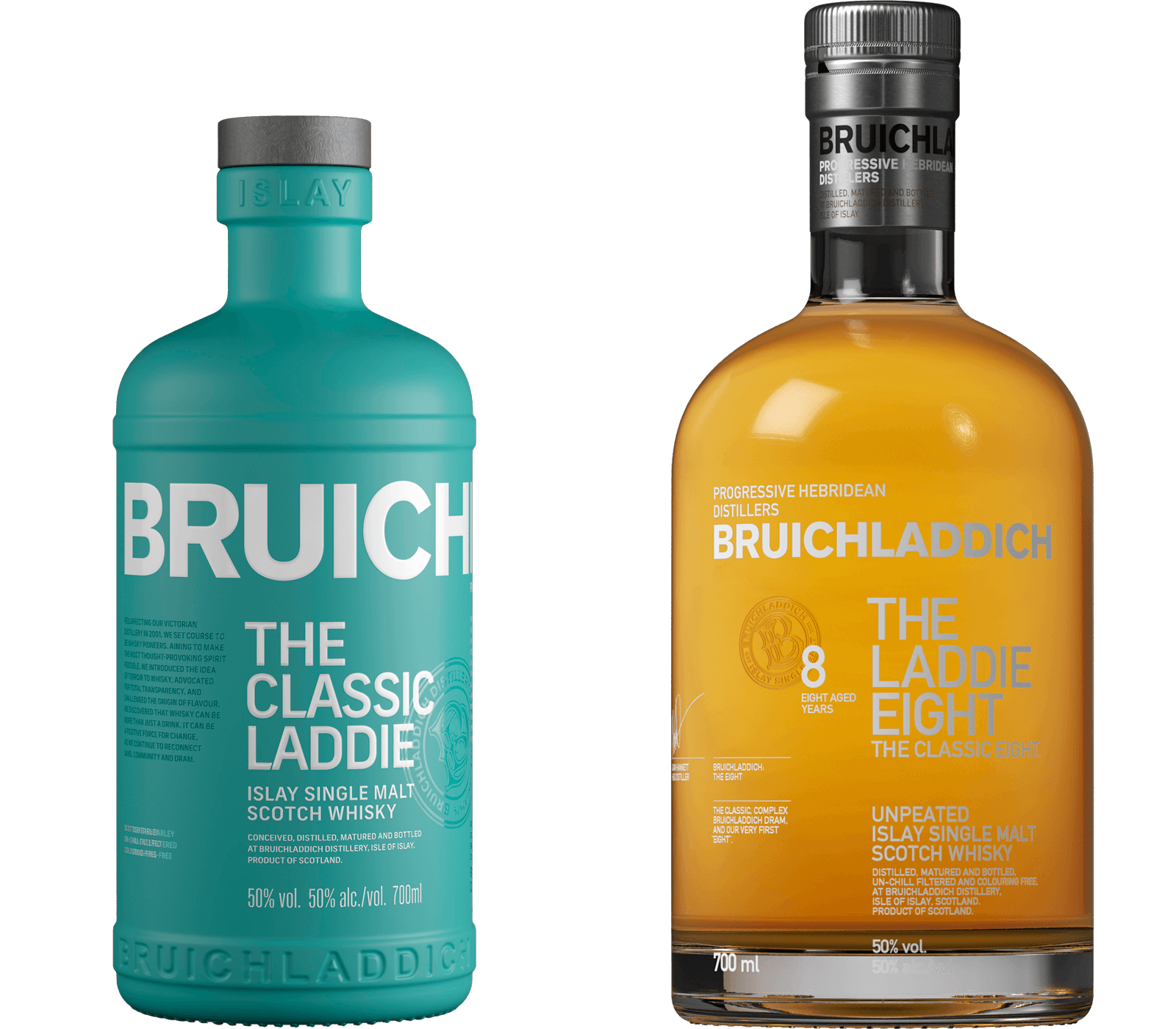
BARLEY
Barley, yeast and water are the primary ingredients in Scotch, with barley in particular contributing different flavours and textures to our final recipes.
Our Scottish Mainland Barley is grown in the Inverness-shire region of Scotland, near the home of our malting partners – Bairds. As our mainland barley is grown in different regions within Scotland, we are still exploring the effects on flavour.
Our Scottish Mainland Organic Barley is traceable back to a single farm, which varies according to year. It is often creamy and sometimes herbacious in flavour, resulting in a spirit with a smooth mouthfeel and a remarkable presence on the palate.
Importantly, you will find some casks of spirit distilled from Islay Barley maturing in our warehouse (currently we use 52% Islay grown barley in our whiskies). This barley is said to be citrusy, with a strong maritime influence.
You can read more on the other barley types we grow in Scotland, including our exception to the 100% Scottish rule in our biodynamic barley, here.
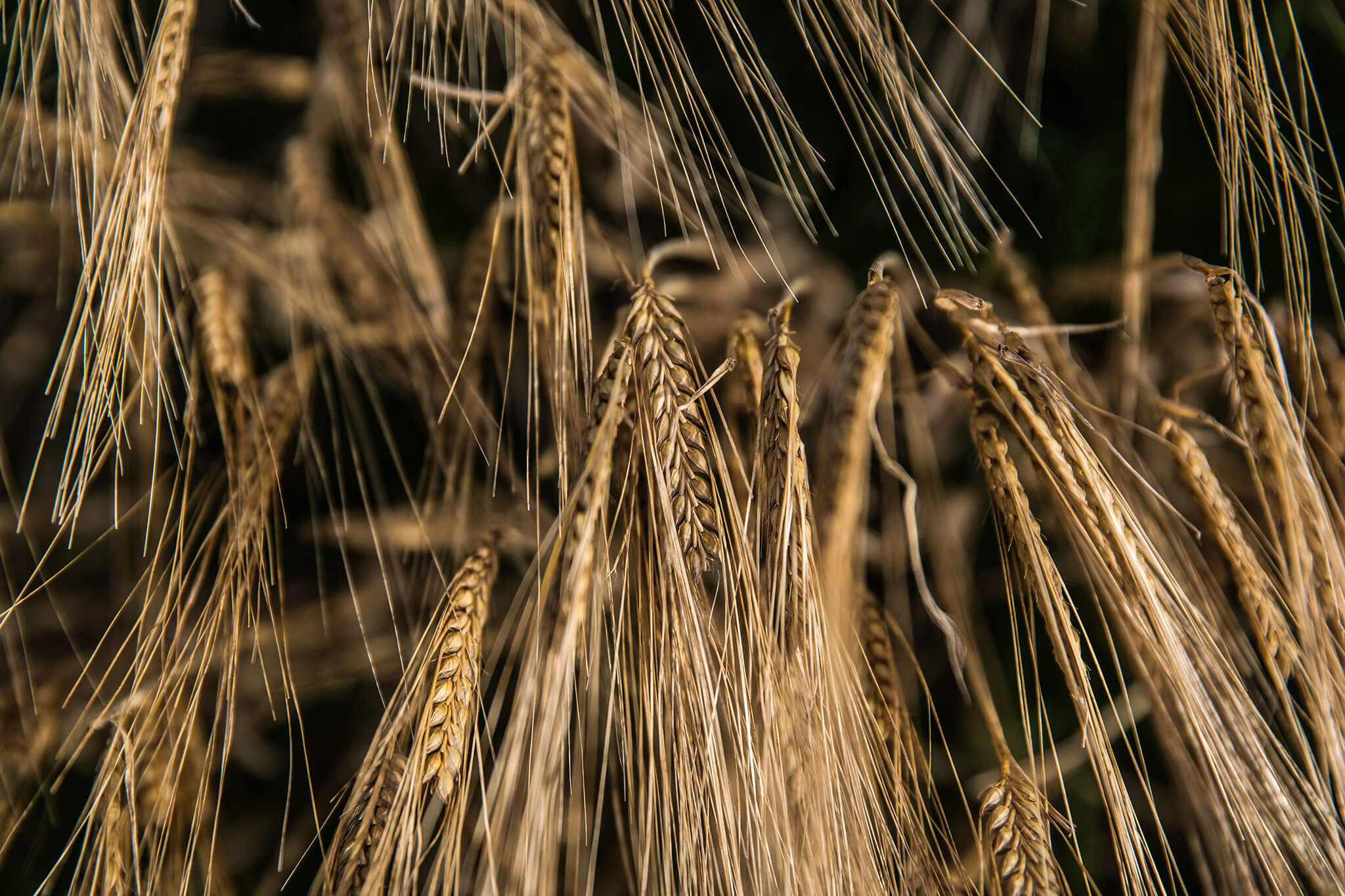
CASKS
"Scotch distillers must only fill their spirit into oak casks. While other world whisky distilleries can use different types of wood, we must experiment with oak alone. Sourced from every corner of the globe, our casks are described in our recipes according to their origin, the alcohol they previously held, their size and the number of times they have been used. More than just a vessel to mature our spirit, the toasting or charring of the casks and the oak type can also dramatically affect flavour.
Since the re-opening of our distillery, we have used some of the rarest and most prestigious casks in the industry, contibuting exceptional quality oak to the maturation process.
+ Bourbon Barrels [ 200 litres capacity ] - Up to 90% of the casks that we fill at Bruichladdich are ex-bourbon barrels from the USA. We predominantly source casks from Jack Daniels, Heaven Hill, Jim Beam and Old Grandad. Bruichladdich spirit matured in these ex-bourbon casks typically gives vanilla, butterscotch and tropical fruit notes.
+ Hogsheads & Barriques [ 225-250 litres capacity ] – Hogsheads are normally casks that are rebuilt from the staves of ex-bourbon barrels and given new heads. We also use this term in our recipes to refer to wine barriques. Ex-European hogsheads and barriques will impart dry, spicy and fruity flavours, differing slightly according to the type of wine they have previously held.
+ Butts [ 500 litres capacity ] – Butts have traditionally held sherry before making their way to us. The type of sherry that was previously in the cask is important. We predominantly use ex-Oloroso and ex-Pedro Ximenex in our Classic recipes. Oloroso sherry gives nutty, ripe fruit flavours, almost like molasses, while Pedro Ximenex provides sweet, dark fruit flavours like raisin or fig."
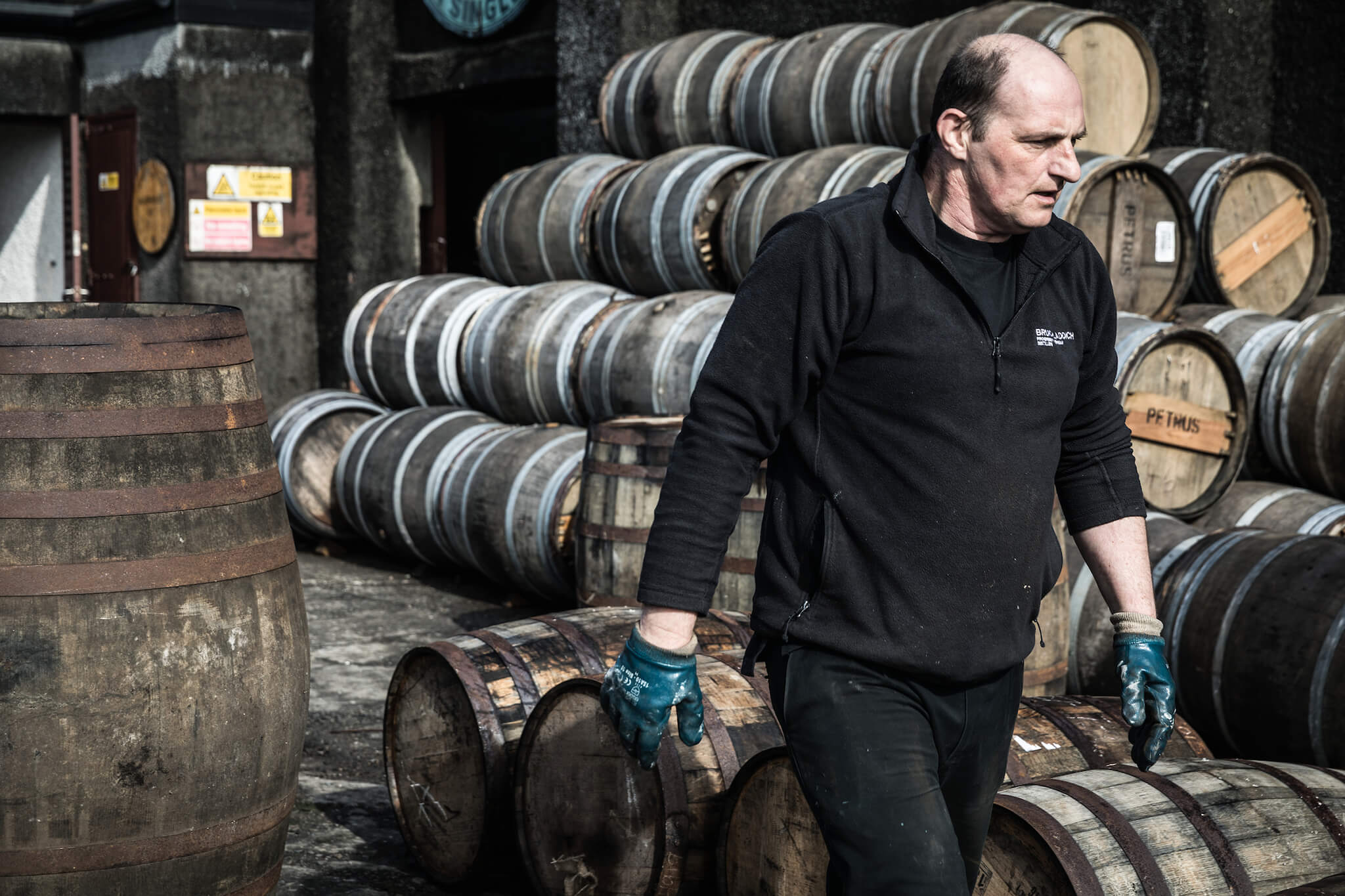
AGING OVER TIME
There’s a common conception in single malt whisky that the older the spirit is, the better it is.
This isn’t necessarily true.
Age is not the only signifier of quality in single malt whisky but it is important to consider the length of maturation in relation to other factors. For example, younger whiskies retain more of the cereal and malt notes from the barley, whereas older whiskies will have more time to interact and take flavour from the cask. The condition of the casks are particularly important – whisky sitting in tired wood for a long time won’t contribute much flavour at all. When vatting The Classic Laddie and The Laddie Eight, our head distiller must take all these considerations into account to perfectly balance the flavours of all the ingredients he is using.
We are legally only allowed to tell you the youngest age contained in the bottle, here’s why.
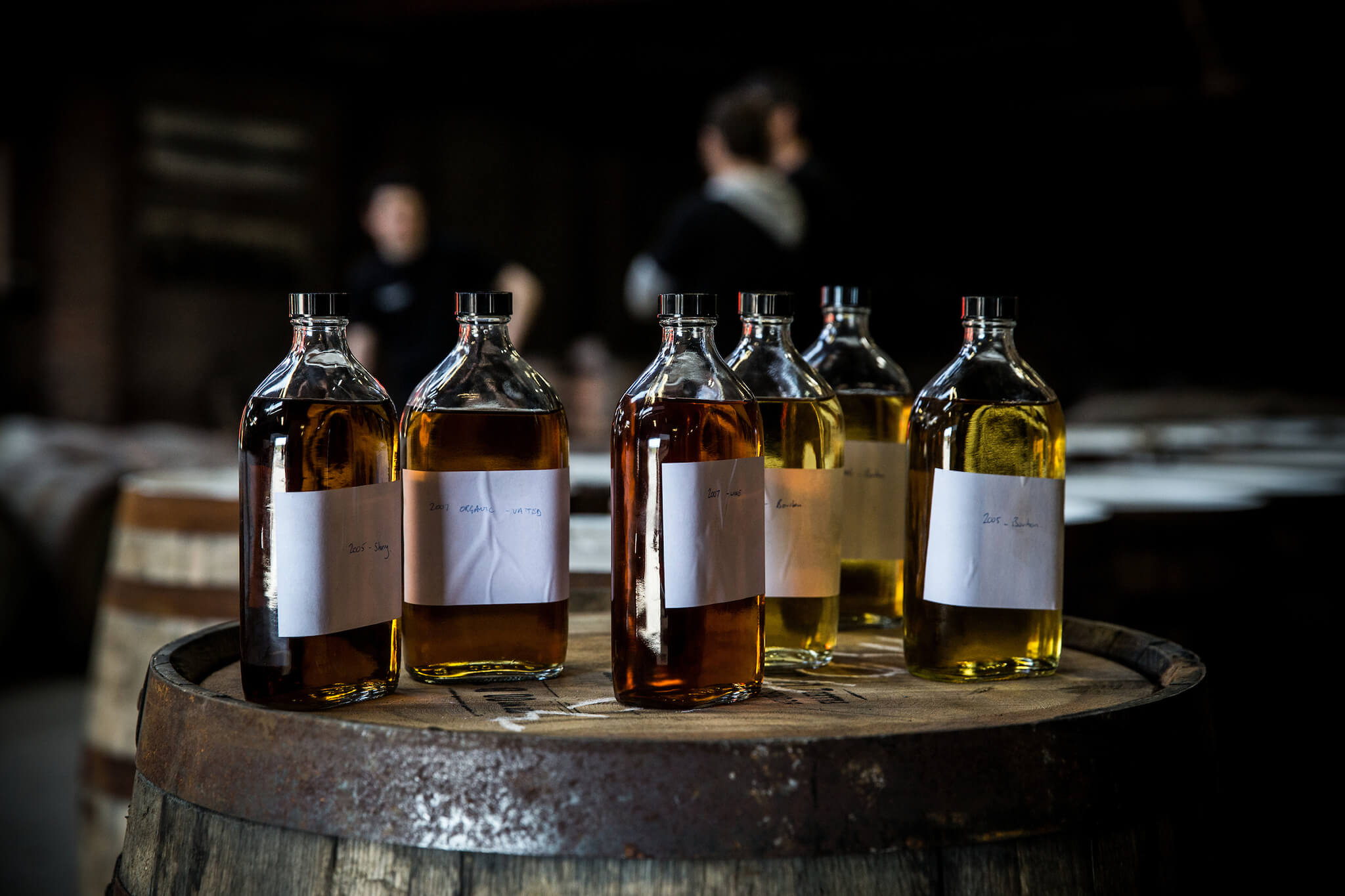
OTHER INGREDIENTS
While we’ve focussed on barley, cask and age there are a number of other factors which contribute to the flavour of our whisky.
WATER
We use three different water sources in our production process, two of which affect flavour. One is our source water from our own reservoir, An Torran, and the other is our bottling water, to bring our whiskies down to bottling strength. This is sourced from a spring that is situated just two miles from the distillery, on farmer James Brown’s land.
YEAST
We have deliberately kept our yeast consistent throughout our experimentation. A mixture of a fast-acting strain and a slow acting strain gives us the right balance of quality and yield of spirit. These strains ensure we maintain a classic ‘Laddie-DNA’ to our fermentation in our traditional wooden washbacks.
PROCESS
Our distillery was originally built in 1881 and we continue to embrace some of the traditional ways that whisky was made back then, namely ‘by-hand’. Every distillation may be subtly different depending on the season, the barley type and who is at the helm that day. These artisanal nuances are celebrated when we create our whiskies, and we welcome variety and diversity.
